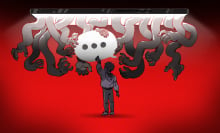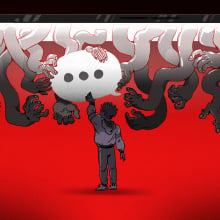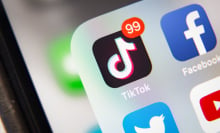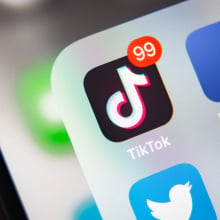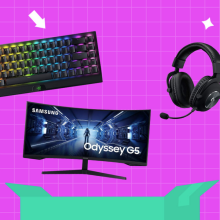Lydia Bach, a 15-year-old sophomore living in New York City, has a message for adults who think teens can't possibly experience burnout.
"If people want to find out what teens are burnt out about, they have to just take a look at the world," Bach says, rattling off stressors like gun violence and global conflict, not to mention the "ever-looming threat that we actually won't have a future because of climate change."
Now, she says, imagine you're a high school student also trying to constantly "be better" and "do better," because "productivity culture" demands regular self-improvement. Meanwhile, you're painfully aware of the economic stakes of your high school career. Without a high grade point average, you might not get into the good college, which will set you up for the well-paying job with health insurance.
Trying to meet high expectations set by parents, teachers, coaches, peers, and even themselves, teens have to also contend with social media. The unpredictable algorithmic force that is the internet often amplifies the different pressures that teens feel, according to a new report on grind culture from Common Sense Media, the Center for Digital Thriving at Harvard School of Education, and Indiana University.
For teens, these pressures include feeling like they need to have a "game plan" for their future; that they must rack up "exceptional" achievements; and that they should look and present themselves in a certain way. More than a quarter of the 1,545 teens surveyed by the researchers struggle with burnout.
Bach, who runs the social media account for the podcast This Teenage Life, has mixed opinions about social media. A writer and quilter, Bach has found online communities that deepen her interests. But she's also acutely aware of posts that could make her feel like she's not achieving or succeeding enough, such as a friend sharing about an award they won.
In the research on grind culture, teens said that social media posts about achievements like personal records at the gym and college acceptances could exacerbate pressure.
"When we see a lot of people, in a short amount of time, talking about their accomplishments, we feel like we should also have something to show," Bach says. In coordination with the new report's release, This Teenage Life aired a new episode about teen burnout, which Bach participated in.
"The path that leads to burnout"
While there's no evidence of a causal link between social media and burnout, Amanda Lenhart, head of research for Common Sense Media, says the survey findings showed that social media tends to amplify the pressures that teens experience more often than it alleviates them.
The report identified six types of pressures that most commonly affect teens. In addition to expectations related to their future, personal achievements, and appearance, teens also feel like they need to have an active and visible social life; stay available to and be supportive of friends; and do good for their communities or stay informed about different issues.
"When we ask young people, they themselves directly point to the pressures as the path that leads to burnout," Lenhart says.
Social media intensifies stress that teens feel about their appearance, according to the survey. The participants who felt this way said that TikTok, Instagram, and Snapchat increased pressure to look a certain way and made them feel "worse." A smaller percentage of teens said that social media, in general, sometimes decreases appearance-related pressure.
Helping teens with burnout
Dr. Tori Cordiano, a licensed clinical psychologist in Beachwood, Ohio, who works with clients in private practice and as a school consultant psychologist, says that teens began using the term "burnout" about five to seven years ago.
Some use the word interchangeably with stress to describe feeling overwhelmed. But others are experiencing burnout as a chronic condition characterized by the "depletion of the ability to even think about how to move forward," says Cordiano.
She also believes that social media plays a complicated role in burnout for teens, at turns worsening how they feel while also providing meaningful opportunities to connect with friends.
But Cordiano notes that the grind of self-improvement is a huge part of the self-care and wellness content that populates teens' social media feeds. The "dark underbelly" of this content subtly convinces teens that feeling good is about "perfecting every part of yourself," which then puts enormous pressure on teens, Cordiano says.
Indeed, the survey found that while teens want to practice self-care, they often don't have or make the time to do so, and can feel like that time isn't "productive."
Teens who weren't experiencing any of the pressures identified in the report — 19 percent of those surveyed — got more sleep, spent more time outside in nature, and had more free time.
Lenhart says parents should pay serious, close attention to signs that their teen may be burning out, and work with them to identify healthy strategies to ease their burden. That includes taking pressure off them to be successful at everything they do, or exceptional at even one of their pursuits.
Cordiano recommends that parents develop reasonable expectations of how their teen manages their time and schedule, helping them to set boundaries as needed for their mental health and well-being. She also suggests they collaborate with their teen on identifying types of social media use that make them feel worse.
Bach has found that reading books about other life experiences is helpful for weathering burnout, because they offer a different perspective—and a reminder that the exhaustion is temporary. Still, she worries that she's facing a years-long grind as she tries to establish herself as an adult in a culture that seems to value nonstop work above all else.
Cordiano says it's up to adults to change this perception for young people and "to let them know that this is actually not our hope or expectation for teenagers, that they are living under a mountain of stress."
Topics Mental Health Social Good Social Media


